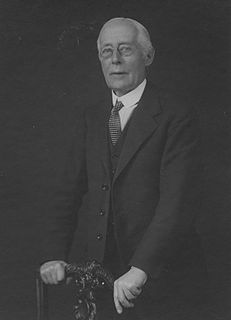A Quote by Francois de La Rochefoucauld
Confidence always pleases those who receive it. It is a tribute we pay to their merit, a deposit we commit to their trust, a pledge that gives them a claim upon us, a kind of dependence to which we voluntarily submit.
Related Quotes
I really can't claim ever to have had an exceptionally close relationship with a minister. I'm always there. I pay my pledge. I listen and observe with interest. I'm very sympathetic with the rigor and the aesthetic quality of what they do. Aside from that, I don't have a kind of personal experience with any of them that I could consider privileged, so to speak.
Cast not away your confidence because God defers his performances. That which does not come in your time, will be hastened in his time, which is always the more convenient season. God will work when he pleases, how he pleases, and by what means he pleases. He is not bound to keep our time, but he will perform his work, honor our faith, and reward them that diligently seek him.
Just praise is only a debt, but flattery is a present. The acknowledgment of those virtues on which conscience congratulates us is a tribute that we can at any tine exact with confidence; but the celebration of those which we only feign, or desire without any vigorous endeavours to attain them, is received as a confession of sovereignty over regions never conquered, as a favourable decision of disputable claims, and is more welcome as more gratuitous.
First in point of time and interest comes the mortgage debt, i.e. the claim for the return of money lent on the security of some tangible object. Such claims are among the earliest fruits of a commercial civilization, and are nearly always affected the same way, viz. by the deposit or pledge of the security with the creditor, to be redeemed or returned on the payment of the debt.
Now in regard to trades and other means of livelihood, which ones are to be considered becoming to a gentleman and which ones are vulgar, we have been taught, in general, as follows. First, those means of livelihood are rejected as undesirable which incur people's ill-will, as those of tax-gatherers and usurers. Unbecoming to a gentleman, too, and vulgar are the means of livelihood of all hired workmen whom we pay for mere manual labour, not for artistic skill; for in their case the very wage they receive is a pledge of their slavery.
Trusting God means transferring our confidence and hope from ourselves to him, acknowledging that we have no ability in ourselves to live in a way that pleases him. Only he can change us by the power of his Spirit in us. This trust is manifested in a context of obedience in our lives to the biblical mandates God calls us to pursue. Training means acting upon that trust by doing things that help us rely upon God more and live out his desire for us.
I am not attempting to preserve culture, or record actual events or stories. Instead I bow my head in gratitude to those storytellers who have gone before and paved a way for me play in their stomping grounds. Doubtless those who want to be offended, will - allowing me to make them happy, too, which pleases me as much as it pleases them.
The greatest human virtue bears no proportion to human vanity. We always think ourselves better than we are, and are generally desirous that others should think us still better than we think ourselves. To praise us for actions or dispositions which deserve praise is not to confer a benefit, but to pay a tribute. We have always pretensions to fame which, in our own hearts, we know to be disputable, and which we are desirous to strengthen by a new suffrage; we have always hopes which we suspect to be fallacious, and of which we eagerly snatch at every confirmation.
On Father's Day, we pay tribute to all in our society who have taken on the responsibilities and joys of fatherhood. Whether our fathers are near at hand or a continent away, with their families or watching from the light of eternity, we take this day to remember them, to say our thanks for the years they have given us, and to ask that they receive God's blessings.
He who asks to receive his daily bread does not automatically receive it in its fullness as it is in itself: he receives it according to his own capacity as recipient. The Bread of Life (cf. Jn. 6:35) gives Himself in His love to all who ask, but not in the same way to all; for He gives Himself more fully to those who have performed great acts of righteousness, and in smaller measure to those who have not achieved so much. He gives Himself to each person according to that person's spiritual ability to receive Him.
Those of us who write and study history are accustomed to its approximations and ambiguities. This is why we do not take literally the tenth-hand reports of frightened and illiterate peasants who claim to have seen miracles or to have had encounters with messiahs and prophets and redeemers who were, like them, mere humans. And this is also why we will never submit to dictation from those who display a fanatical belief in certainty and revelation.



































